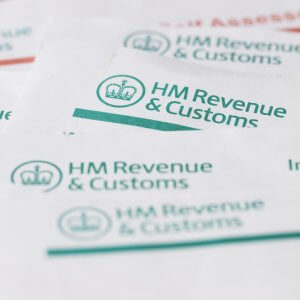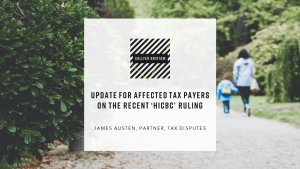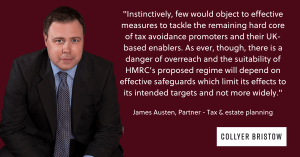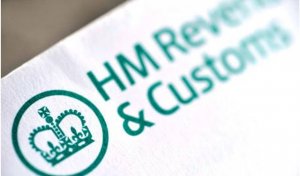- Tax disputes & investigations

Longer Reads
Collyer Bristow instructed in HMRC -v- Wilkes : High Income Child Benefit Charge
On Wednesday 26 May 2021, the Upper Tribunal will hear HMRC’s appeal on the so-called “High Income Child Benefit Charge”. The outcome of the case will affect hundreds of thousands of taxpayers.
2 minute read
Published 25 May 2021
Key information
- Specialisms
- Private Wealth
- Services
- Tax disputes & investigations
On Wednesday 26 May 2021, the Upper Tribunal (The Hon. Mrs Justice Falk DBE and Judge Timothy Herrington) will hear HMRC’s appeal in the leading “High Income Child Benefit Charge” (the HICBC) case.
The taxpayer assessed to the HICBC is Jason Wilkes, but hundreds of thousands of taxpayers will be affected by the outcome of this case.
When the Upper Tribunal’s decision is released, it will set a binding precedent on whether HMRC is able to impose the HICBC by means of a “Discovery Assessment” outside the normal four-year time limit for tax assessments. It may also have implications for the validity of Discovery Assessments more generally.
Background
Mr Wilkes was liable to the HICBC in the tax years 2014-15 to 2016-17. In common with many taxpayers in his position, he was unaware of it at the time. HMRC wrote to Mr Wilkes in November 2018 to tell him that he might be liable to pay the HICBC. After checking the position, Mr Wilkes notified HMRC that he was liable. At that point, HMRC issued Mr Wilkes with “Discovery Assessments” for underpaid tax. Recognising that Mr Wilkes had a “reasonable excuse” for not paying the HICBC at the time, HMRC did not seek to impose penalties on him.
Mr Wilkes (represented by his wife, Mrs Samantha Wilkes) successfully appealed against the assessment to the HICBC in the First-tier Tribunal (FTT): according to the FTT, HMRC have no power to impose the charge by means of Discovery Assessments.
It is against that decision that HMRC now appeals to the Upper Tribunal.
Importance of the Case
If the Upper Tribunal upholds the FTT’s decision, it will mean that HMRC never had any power to issue Discovery Assessments for the HICBC – and therefore the Discovery Assessments issued by HMRC were invalid.
It is not yet known precisely how many Discovery Assessments HMRC has issued in HICBC cases. In principle, the great majority should not survive a finding in favour of Mr Wilkes by the Upper Tribunal, e.g. where a self-assessment tax return was not submitted.
This appeal is on a number of narrow but important technical points relating to the proper meaning of the word “income” in section 29 Taxes Management Act 1970 (which confers on HMRC the power to issue discovery assessments in certain circumstances).
The HICBC
The HICBC was introduced by the coalition government in January 2013. Despite its name, it has since 6 April 2021 affected purely basic-rate taxpayers. Its purpose is to claw back Child Benefit payments from those whose “Adjusted Net Income” for tax purposes exceeds £50,000, though without the need for general means-testing.
From the first, the HICBC was controversial, and the government was repeatedly warned that there were major flaws in the policy and its implementation. In a recent report critical of the HICBC, the Office for Tax Simplification has recommended that Parliament review the HICBC, and reshape the charge and its collection mechanisms.
87% of Child Benefit claimants are women and one of the frequent criticisms of the HICBC is that it indirectly discriminates against women on the basis of sex. In the FTT, HMRC argued that the HICBC is not discriminatory, with no recognition of the statistical evidence to the contrary.
Comment
Commenting ahead of the hearing, James Austen, Partner and Head of Tax Disputes at Collyer Bristow LLP, said:
“I am delighted to support Jason and Sam Wilkes in this appeal. Their case raises important questions about HMRC’s power to issue Discovery Assessments in HICBC cases, often years after the event. Following this case, we will know for the first time whether HMRC were right to levy the HICBC against hundreds of thousands of taxpayers. Affected families will want to follow the outcome closely.”
Notes
James Austen, Partner and Head of Tax Disputes, and Jean-Martin Louw, Associate, both of Collyer Bristow LLP, represent Mr Wilkes pro-bono in this appeal.
Barristers Richard Vallat QC of Pump Court Tax Chambers and Marika Lemos of Devereux Chambers appear for Mr Wilkes pro bono.
Any enquiries on this matter should be made in the first instance to James Austen.
Related content
Longer Reads
Collyer Bristow instructed in HMRC -v- Wilkes : High Income Child Benefit Charge
On Wednesday 26 May 2021, the Upper Tribunal will hear HMRC’s appeal on the so-called “High Income Child Benefit Charge”. The outcome of the case will affect hundreds of thousands of taxpayers.
Published 25 May 2021
Associated sectors / services
Authors
On Wednesday 26 May 2021, the Upper Tribunal (The Hon. Mrs Justice Falk DBE and Judge Timothy Herrington) will hear HMRC’s appeal in the leading “High Income Child Benefit Charge” (the HICBC) case.
The taxpayer assessed to the HICBC is Jason Wilkes, but hundreds of thousands of taxpayers will be affected by the outcome of this case.
When the Upper Tribunal’s decision is released, it will set a binding precedent on whether HMRC is able to impose the HICBC by means of a “Discovery Assessment” outside the normal four-year time limit for tax assessments. It may also have implications for the validity of Discovery Assessments more generally.
Background
Mr Wilkes was liable to the HICBC in the tax years 2014-15 to 2016-17. In common with many taxpayers in his position, he was unaware of it at the time. HMRC wrote to Mr Wilkes in November 2018 to tell him that he might be liable to pay the HICBC. After checking the position, Mr Wilkes notified HMRC that he was liable. At that point, HMRC issued Mr Wilkes with “Discovery Assessments” for underpaid tax. Recognising that Mr Wilkes had a “reasonable excuse” for not paying the HICBC at the time, HMRC did not seek to impose penalties on him.
Mr Wilkes (represented by his wife, Mrs Samantha Wilkes) successfully appealed against the assessment to the HICBC in the First-tier Tribunal (FTT): according to the FTT, HMRC have no power to impose the charge by means of Discovery Assessments.
It is against that decision that HMRC now appeals to the Upper Tribunal.
Importance of the Case
If the Upper Tribunal upholds the FTT’s decision, it will mean that HMRC never had any power to issue Discovery Assessments for the HICBC – and therefore the Discovery Assessments issued by HMRC were invalid.
It is not yet known precisely how many Discovery Assessments HMRC has issued in HICBC cases. In principle, the great majority should not survive a finding in favour of Mr Wilkes by the Upper Tribunal, e.g. where a self-assessment tax return was not submitted.
This appeal is on a number of narrow but important technical points relating to the proper meaning of the word “income” in section 29 Taxes Management Act 1970 (which confers on HMRC the power to issue discovery assessments in certain circumstances).
The HICBC
The HICBC was introduced by the coalition government in January 2013. Despite its name, it has since 6 April 2021 affected purely basic-rate taxpayers. Its purpose is to claw back Child Benefit payments from those whose “Adjusted Net Income” for tax purposes exceeds £50,000, though without the need for general means-testing.
From the first, the HICBC was controversial, and the government was repeatedly warned that there were major flaws in the policy and its implementation. In a recent report critical of the HICBC, the Office for Tax Simplification has recommended that Parliament review the HICBC, and reshape the charge and its collection mechanisms.
87% of Child Benefit claimants are women and one of the frequent criticisms of the HICBC is that it indirectly discriminates against women on the basis of sex. In the FTT, HMRC argued that the HICBC is not discriminatory, with no recognition of the statistical evidence to the contrary.
Comment
Commenting ahead of the hearing, James Austen, Partner and Head of Tax Disputes at Collyer Bristow LLP, said:
“I am delighted to support Jason and Sam Wilkes in this appeal. Their case raises important questions about HMRC’s power to issue Discovery Assessments in HICBC cases, often years after the event. Following this case, we will know for the first time whether HMRC were right to levy the HICBC against hundreds of thousands of taxpayers. Affected families will want to follow the outcome closely.”
Notes
James Austen, Partner and Head of Tax Disputes, and Jean-Martin Louw, Associate, both of Collyer Bristow LLP, represent Mr Wilkes pro-bono in this appeal.
Barristers Richard Vallat QC of Pump Court Tax Chambers and Marika Lemos of Devereux Chambers appear for Mr Wilkes pro bono.
Any enquiries on this matter should be made in the first instance to James Austen.
Associated sectors / services
- Tax disputes & investigations
Authors
Need some more information? Make an enquiry below.
Subscribe
Please add your details and your areas of interest below
Article contributors
James
AustenPartner
Specialising in UK trusts, tax & estate planning, Private wealth and Tax disputes & investigationsJean-Martin
LouwAssociate
Specialising in Commercial disputes, Banking & financial disputes, Commercial arbitration and Financial regulatory
Enjoy reading our articles? why not subscribe to notifications so you’ll never miss one?
Subscribe to our articlesMessage us on WhatsApp (calling not available)
Please note that Collyer Bristow provides this service during office hours for general information and enquiries only and that no legal or other professional advice will be provided over the WhatsApp platform. Please also note that if you choose to use this platform your personal data is likely to be processed outside the UK and EEA, including in the US. Appropriate legal or other professional opinion should be taken before taking or omitting to take any action in respect of any specific problem. Collyer Bristow LLP accepts no liability for any loss or damage which may arise from reliance on information provided. All information will be deleted immediately upon completion of a conversation.
Close





































